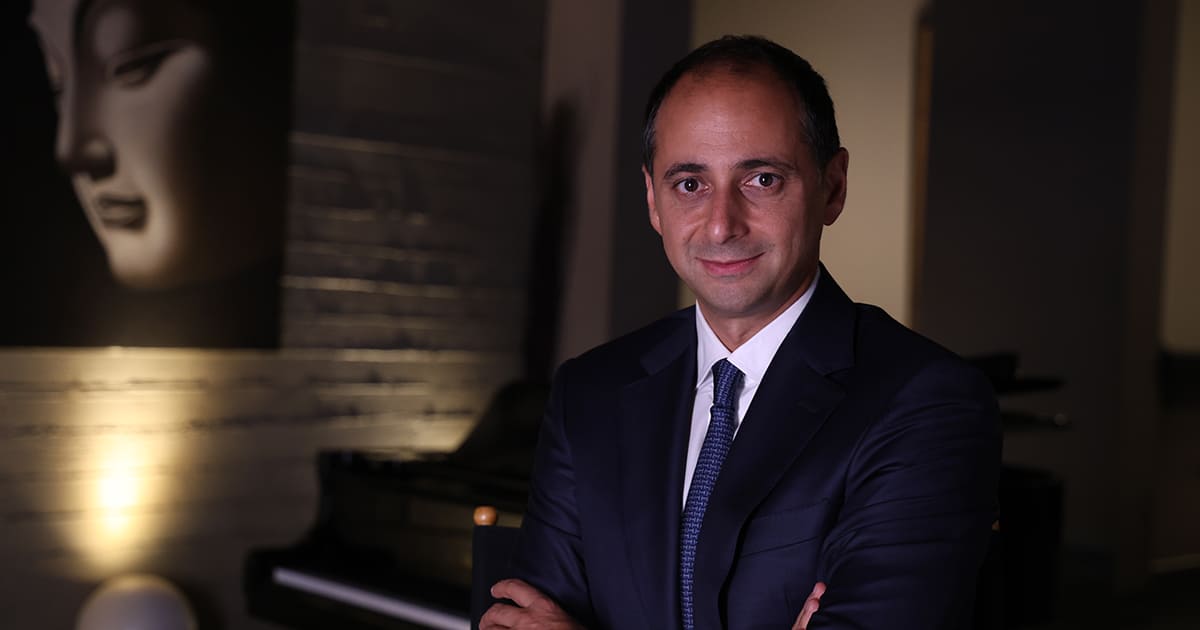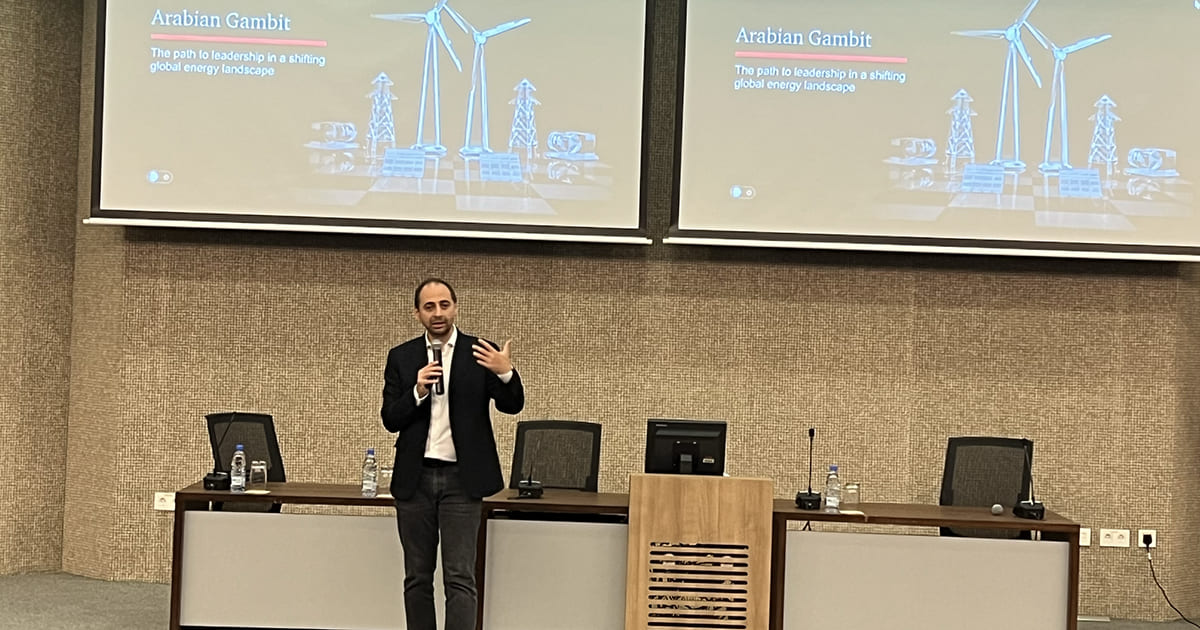Alumnus Yahya Anouti on the Future of Sustainability and Essential Gambits
The mechanical engineering graduate, partner at Strategy& and author reflects on the seismic changes in the energy sector and the opportunities available for young people.
A car racing fan, alumnus Yahya Anouti (BE ’04) joined LAU’s mechanical engineering program to feed his interest. A few semesters and a class on thermodynamics later, he discovered a passion for the energy sector and chose to pursue the economic dimension of this field in his graduate studies and professional life.
Today, Dr. Anouti is a Partner at Strategy& and the Sustainability Platform Leader for PwC Middle East, with deep expertise in resource-based sustainable development and Environmental, Social and Governance (ESG) strategies across multiple global regions.
After graduating from LAU, he was selected as a Fulbright scholar to earn a master’s in Energy and Earth Resources from the University of Texas at Austin, which he later complemented with a PhD in Energy and Environmental Economics from the Colorado School of Mines.
Dr. Anouti recently co-authored Arabian Gambit: The path to leadership in a shifting global energy landscape. As he argues in the following interview, curiosity—coupled with technical skills, a high GPA and the courage to drive change—may be the most strategic gambit of all.
What do you believe are the timeliest challenges for governments and the private sector when it comes to energy sustainability?
We have a trilemma to solve: The affordability, sustainability, and resilience of our energy system. With climate change, it is imperative that we approach the greenhouse gas challenge with a focus on affordability while ensuring the security and resilience of the system. This means adding green energy and bending the emissions curve from the current system to one that produces greener electrons, molecules and bytes—the latter being the fastest-growing consumer of energy as we reach the inflection point of the AI era.
We need to capitalize on the declining cost of renewable and nuclear energy, especially in our region. At the same time, we need to drive energy efficiency, scale carbon capture, utilization and sequestration, as well as fund initiatives that bend the carbon curve across different sectors, especially in manufacturing, building and transportation.
The opportunity in the Middle East is immense. With the world’s lowest cost of renewable energy—reaching nearly one cent per kWh in Saudi Arabia—and vast amounts of available land, we are set to invest $2 trillion in infrastructure and real estate over the next decade. Combined with our engineering capabilities and robust infrastructure, we have a unique opportunity to pioneer a circular carbon economy.
What are the opportunities for young graduates seeking jobs in sustainability? How would you advise them to build their profiles in anticipation of these opportunities or job-market needs?
The Arabian Gambit presents unprecedented opportunities for the region’s young graduates. For civil engineers and architects, this era opens doors to integrate sustainability into our urban fabric—transforming buildings, cities, and mega developments into models of resilience and zero-carbon emissions.
Petroleum engineers and geologists have equally vital roles, leveraging their expertise to enable carbon sequestration and advance geosolutions, thus redefining their disciplines for a more sustainable future. Similarly, chemists and chemical engineers will be at the forefront of pioneering green molecules and sustainable chemical processes, which are critical for moving away from conventional fossil-based materials toward a new green chemistry paradigm. These are just a few examples.
Beyond technical roles, the core of these opportunities lies in three essential competencies: Analytical and technical mastery, exceptional problem-solving capabilities, and the influential leadership of changemakers. It is about being inherently curious, possessing foundational analytical competencies that combine technical capabilities with economic and financial acumen, and the drive and leadership qualities to influence and be entrepreneurial.
To build a strong profile, students should pursue internships and practical experiences in emerging sustainable sectors, engage in research and projects that solve real-world problems, and hone their communication and leadership skills.
What first sparked your interest and led you to work in consulting as a mechanical engineering graduate? Are there any special skills/ experiences from your time at LAU that you believe set you up for a successful career in consulting?
I enrolled in the mechanical engineering program because of my passion for joining the world of Formula 1—those were the days of the great Michael Schumacher. In my second year, I took a class on thermodynamics with Dr. Elie Badr, which drew me into the broader field of power and energy.
A semester later, the Engineering Economics class with Dr. Jean Chatila sparked my interest in the financial side of mega projects and the world of economics.
When the time came for internships, I was fortunate—thanks to the support of the Career Guidance Office—to join the Consolidated Contractors Company (CCC) and work on the construction of the Baku-Tbilisi-Ceyhan pipeline. I then realized that I did not want to be a field engineer, but the one planning for the pipeline, deciding on its route, and thinking of the economics and the commercial agreements. That’s when I decided to apply for a Fulbright Scholarship.
I started my career with Strategy& (part of the PwC network, previously Booz Allen Hamilton), which I interrupted to complete a PhD in energy and environmental economics and a stint at the World Bank in Washington, DC.
The conceptual thinking and analytical rigor I developed early on—starting with calculus and differential equations courses with Dr. May Hamdan and Dr. Samer Habr—proved to be a lasting strength. Combined with the real-world problem-solving and coding skills I gained from Dr. Ramzi Haraty and Dr. Pierrette Zouein, these capabilities became critical during my post-doctoral years, when I spent what felt like a lifetime turning economic concepts into mathematical models and coding them to evaluate outcomes.
Looking back, I realize the value of the breadth and depth of my education at LAU, both technically and personally. Developing my soft skills, the inspiration from role-model faculty members, and the lifelong friendships played an equal role in shaping my career.

